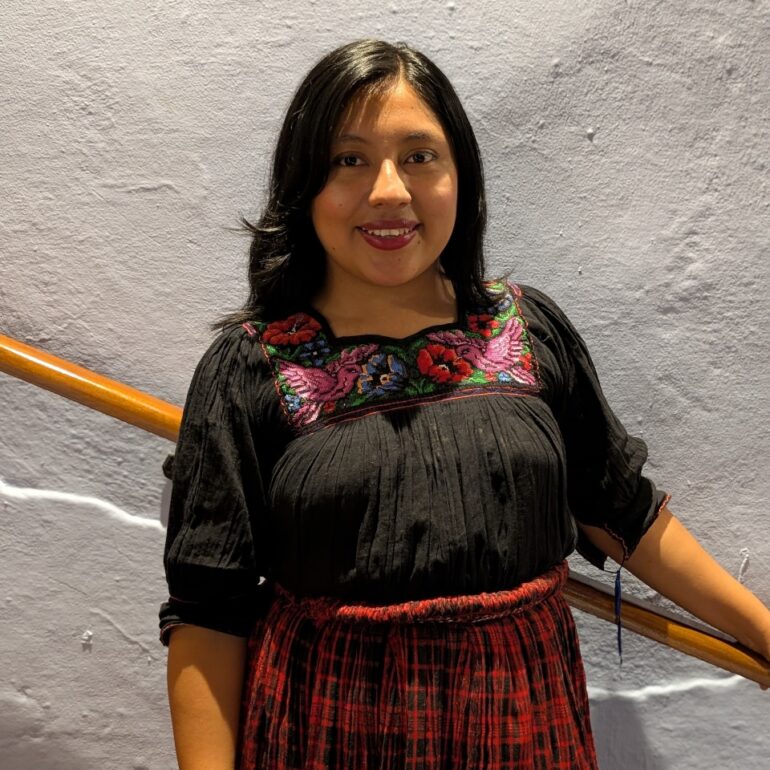
Neida Solís is a Guatemalan journalist and sociologist dedicated to amplifying the struggles of the most vulnerable communities in her country. From her beginnings in community radio, Neida has focused on shedding light on human rights issues, particularly the experiences of indigenous peoples and peasants affected by Guatemala’s agrarian conflict.
In her reporting, Neida not only documents the violence the communities endure but also highlights their remarkable resilience. Through both her camera and her words, she captures the pain and hope that persist in those fighting for their dignity and ancestral rights. Neida’s commitment goes beyond journalism—she has become a steadfast ally to these communities, using her platform to amplify their voices in spaces where they would otherwise remain unheard.
BACKGROUND INFORMATION
The agrarian conflict in Guatemala is a deep-seated issue rooted in centuries of land monopolization by elites, which began with colonization. Indigenous peoples and peasants have long been marginalized, and during the internal armed conflict (1960-1996), this inequality worsened as communities were displaced and their lands seized by the military or agribusiness. Despite the 1996 Peace Accords promising to address the agrarian problem, progress has been slow, with institutions meant to mediate land redistribution dismantled. Violent evictions and the criminalization of community leaders have become commonplace, compounded by the lack of recognition of ancestral land titles and the rise of monocultures that harm both the environment and communities. Despite a system that favors the economic interests of a few, these communities continue to organize and demand justice. Government-promoted dialogue roundtables, though limited, are a small but necessary step toward resolving some issues. However, real change will require a genuine commitment from both the State and civil society to uphold land access as a fundamental human right.
https://orato.world/2024/12/14/journalist-documents-displaced-indigenous-communities-in-guatemala-amid-violent-land-disputes/
 = new reply since forum marked as read
= new reply since forum marked as read
